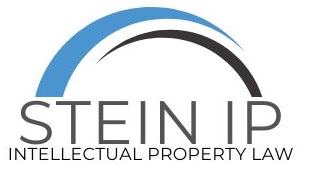docketing@steinip.com
- HOME
- > Blog Main Page
- > AI
- > New York Times v. Open AI: The Fight to Protect Copyrighted Works in the Age of AI
New York Times v. Open AI: The Fight to Protect Copyrighted Works in the Age of AI
By Teghan O’Connell
In 2023, the New York Times filed a copyright infringement lawsuit against Open AI, producer of Chat GPT. [1] The New York Times is arguing that the AI company infringed on the Times’ copyright by using their works to train the AI model Chat GPT. The Times claims the model can regurgitate the style and writing from their articles. Additionally, the plaintiff is arguing that the incorporation of the Times’ works into the model allows users to circumvent the New York Times' paywall and access the information for free. [2] In addition to the information being taken, Chat GPT’s summaries of the Times’ articles are not always accurate but still attributed to the newspaper.
The defense (Open AI) claimed the use of the works was protected by the fair use clause in copyright law. [3] Fair use protects the use of a copyrighted work in circumstances where the work is being used for purposes of criticism, commentary, research, news reporting, teaching, and more. Section 107 of the US Copyright Act evaluates fair use with four factors: 1) the purpose and character of the use, including whether the use is of a commercial nature or is for nonprofit educational purposes, 2) the nature of the copyrighted work, 3) the amount and substantiality of the portion used in relation to the copyrighted work as a whole, and 4) the effect of the use upon the potential market for or value of the copyrighted work. Cases which question fair use can often hinge on whether the work is transformative. [4] Fair use is evaluated on a case-by-case basis, following a fact specific inquiry. [5]
On Thursday, May 18th, 2023, the Supreme Court of the United States released the decision in the case of the Andy Warhol Foundation for the Visual Arts v. Goldsmith. [6] The core issue in the case was the extent to which fair use permits the unlicensed use of copyright protected works in certain circumstances (falling under point 1, the purpose of the work). [7]
In 1984, Lynn Goldsmith licensed her photo of the artist Prince to Vanity Fair for one time use (and a fee of $400). Vanity Fair then contacted Andy Warhol to create an artistic version of the photo, titled “Orange Prince,” based on Goldsmith’s original photo. The current issue arose after years of the Andy Warhol Foundation licensing the photo without paying Goldsmith. The court decided against the Warhol Foundation, finding that the “Orange Prince” image was made for commercial purposes and not transformative, therefore not covered by fair use as the Foundation claimed. [8]
The above issue relates to the Times’ case against Open AI, as Open AI is arguing that the use of the New York Times’ articles is protected by fair use. This raises the question: what is the purpose of the use? Is the goal of ChatGPT educational or commercial?
When looking at the New York Times’ case against Open AI, it is important to note the case is the first of many. Along with the New York Times, 8 other newspapers are suing the AI company for copyright infringement. [9]
Arguments on both sides are contradictory to their respective previous actions. Though the New York Times' current argument revolves around preserving authentic authorship, they have argued the exact opposite in previous legal proceedings. In 1997, the Times argued against authentic authorship when they were sued for copyright infringement while trying to create an online database. [10] On the other hand, Open AI has argued that they were able to use these works under fair use, however other newspapers and media agencies signed licensing agreements for the use of the works from their archives to train the AI. What makes the New York Times' database different? [11]
On March 26th, 2025, a federal judge dismissed OpenAI's attempt to have the case thrown out and will allow the case to proceed. [12]
References
[1] The New York Times Company v. Microsoft Corporation et al, No. 1:2023cv11195 - Document 344 (S.D.N.Y. 2024)
[2] Audrey Pope, NYT v. OpenAI: The Times' About-Face, Harvard Law Review (Apr. 10, 2024), https://harvardlawreview.org/blog/2024/04/nyt-v-openai-the-timess-about-face/
[3] Bobby Allyn, Judge allows ‘New York Times’ copyright case against OpenAI to go forward, npr (Mar. 26, 2025), https://www.npr.org/2025/03/26/nx-s1-5288157/new-york-times-openai-copyright-case-goes-forward
[4] US Copyright Office, U.S. Copyright Office Fair Use Index, Copyright.gov (accessed Apr. 21, 2025), https://www.copyright.gov/fair-use/
[5] US Copyright Office, U.S. Copyright Office Fair Use Index, Copyright.gov (accessed Apr. 21, 2025), https://www.copyright.gov/fair-use/
[6] Andy Warhol Foundation for Visual Arts, Inc. v. Goldsmith, 598 U.S. ___ (2023)
[7] Chloe Veltman, Supreme Court sides against Andy Warhol Foundation in copyright infringement case, npr (May 18, 2023), https://www.npr.org/2023/05/18/1176881182/supreme-court-sides-against-andy-warhol-foundation-in-copyright-infringement-cas
[8] Chloe Veltman, Supreme Court sides against Andy Warhol Foundation in copyright infringement case, npr (May 18, 2023), https://www.npr.org/2023/05/18/1176881182/supreme-court-sides-against-andy-warhol-foundation-in-copyright-infringement-cas
[9] AP News, Eight US newspapers sue ChatGPT-maker OpenAI and Microsoft for copyright infringement, AP News (Apr. 30, 2024), https://apnews.com/article/chatgpt-newspaper-copyright-lawsuit-openai-microsoft-2d5f52d1a720e0a8fa6910dfd59584a9
[10] Audrey Pope, NYT v. OpenAI: The Times' About-Face, Harvard Law Review (Apr. 10, 2024), https://harvardlawreview.org/blog/2024/04/nyt-v-openai-the-timess-about-face/
[11] AP News, Eight US newspapers sue ChatGPT-maker OpenAI and Microsoft for copyright infringement, AP News (Apr. 30, 2024), https://apnews.com/article/chatgpt-newspaper-copyright-lawsuit-openai-microsoft-2d5f52d1a720e0a8fa6910dfd59584a9
[12] Winston Cho, Court Advances The New York Times Lawsuit Against OpenAI, The Hollywood Reporter (Mar. 26, 2025), https://www.hollywoodreporter.com/business/business-news/court-advances-the-new-york-times-lawsuit-openai-1236173504/
TAGS:
RECENT POSTS
